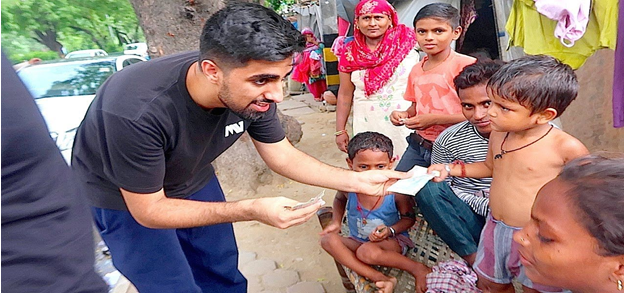 |
Numbula ng’afu siyidzenga. (Bena) Roho ngumu haijengi. (Swahili) Un rigide ne construit pas. (French) A hard spirit does not build. (English) |
Bena (Tanzania) Proverb
Background, Meaning and Everyday Use
In the country of Tanzania, there are about 128 ethnic groups. The Bena are one of these ethnic groups found in the south of Tanzania. They are farmers and breeders. The weather is very good and favourable. Large forests, a lot of rain, cold and hot weather cover the environment during summer. They cultivate a lot of corn, potatoes, tea, cassava, custard apple and other small crops. They are strong workers.
In their culture, they often use riddles, sayings and stories to convey messages to the society and their family members. Numbula ng’afu siyidzenga is a one of the proverbs used by the Bena.
There is a story of a man with a hard spirit who lived in the village of Lupembe. His name was Mgendiyena which means “he walks alone.” Mgendiyena had a wife and children. He was very rich and had a lot of property. Unfortunately this old man was not kind to his neighbors or to his wife and children. He used his property carelessly. The children and their mother struggled to get their daily needs. However, Mgendiyena did not change his position. A few days later Mgendiyena got sick. He could no longer walk or manage his property. Instead his wife and children managed it.
His wife was very kind and took care of her husband without taking revenge because of the good morals she received from her parents. She also taught her children to forgive their father and not to take revenge. She continued to be generous helping people in need by her husband’s property and wealth.
When the elders of the village got the news of his illness, they agreed together to teach Mgendiyena a lesson. They did not go to greet him or give sympathy. They said a hard spirit does not build. The wife told her husband that people have refused to visit you, they say that you have a hard spirit to them. Mgendiyena repented and sent his wife to the elders to ask for forgiveness. His wife did so. When the elders were told they went to visit him and told the old man Mgendiyena a hard spirit does not build. The patient repented of his mistake and promised not to repeat it again after recovering from his illness. He become a kind person, he helped people who needed help with the assets he had. The villagers were told that Mgendiyena had changed his behavior, they were happy and thanked God. That is why in the Wabena Ethnic Group this proverb exists until today, a hard spirit does not build.
This proverb is compared to proud and arrogant people oppressing the poor because of their wealth without having compassion or a generous heart. These are different from a mother who had a generous heart and helped her neighbors and even her children because she showed her generosity through teaching them and warning them not to take revenge on their father. This proverb is likened to good, generous, humble people for the wealth they have because they realize that it is a gift given to them by the Almighty God and they are ready to help the helpless and the poor. The importance of this proverb is the heart of generosity, accepting that even with our wealth we need others so that we can walk together. This proverb teaches and inspires the community to have a generous heart to love and help each other in everyday life.
Biblical Parallels
Luke 16:19: “There was a rich man who wore very expensive clothes and celebrated every day and at the door of the rich man there was a poor man named Lazarus.”
Acts 4:32: “And the community of people who believed had one heart and one spirit and no one said that anything he had was his own property but they had all things in common.”
Contemporary Use And Religious Application
To be blessed in our lives is to strive to live well with people, to do good deeds and to be generous with the abundance we have. Let’s look at the example of the first Christians and how they lived together as one family. Today everywhere in the world the message that being spread is to be generous people. Christians every Sunday receive the Word of God that encourages us to love and help each other in our Small Christian Communities. The teachings are the same, that is, the spirit of generosity to our brothers and sisters. Our bishops also encourage us to participate in Small Communities so that we can share God’s Word with each other and discuss how to help the less fortunate.
In his book on strengthening the growth of Small Christian Communities in Eastern Africa, Father Joseph G. Healey says: “In Eastern Africa Small Christian Communities are caring, cooperating and reflecting on faith, praying and serving each other.” In his book Union with Christ on the Way to God, Father Zakaria Kashinje says: ”May God fill you with his blessings so that you can teach people how to live Christianity by taking care of the needy through your life until you can get your reward in heaven. Amen.”
Finally, the importance of this proverb relates to what we find in the Holy Scriptures and various experts commenting on the revelation of the Word of God. The example of Mgendiyena teaches us in his life that a hard spirit does not build but destroys relationships.
Text and Photograph by:
Sister Felisia Mbifile, SCSF
Rome, Italy
Email: felisiadmbifile@gmail.com
